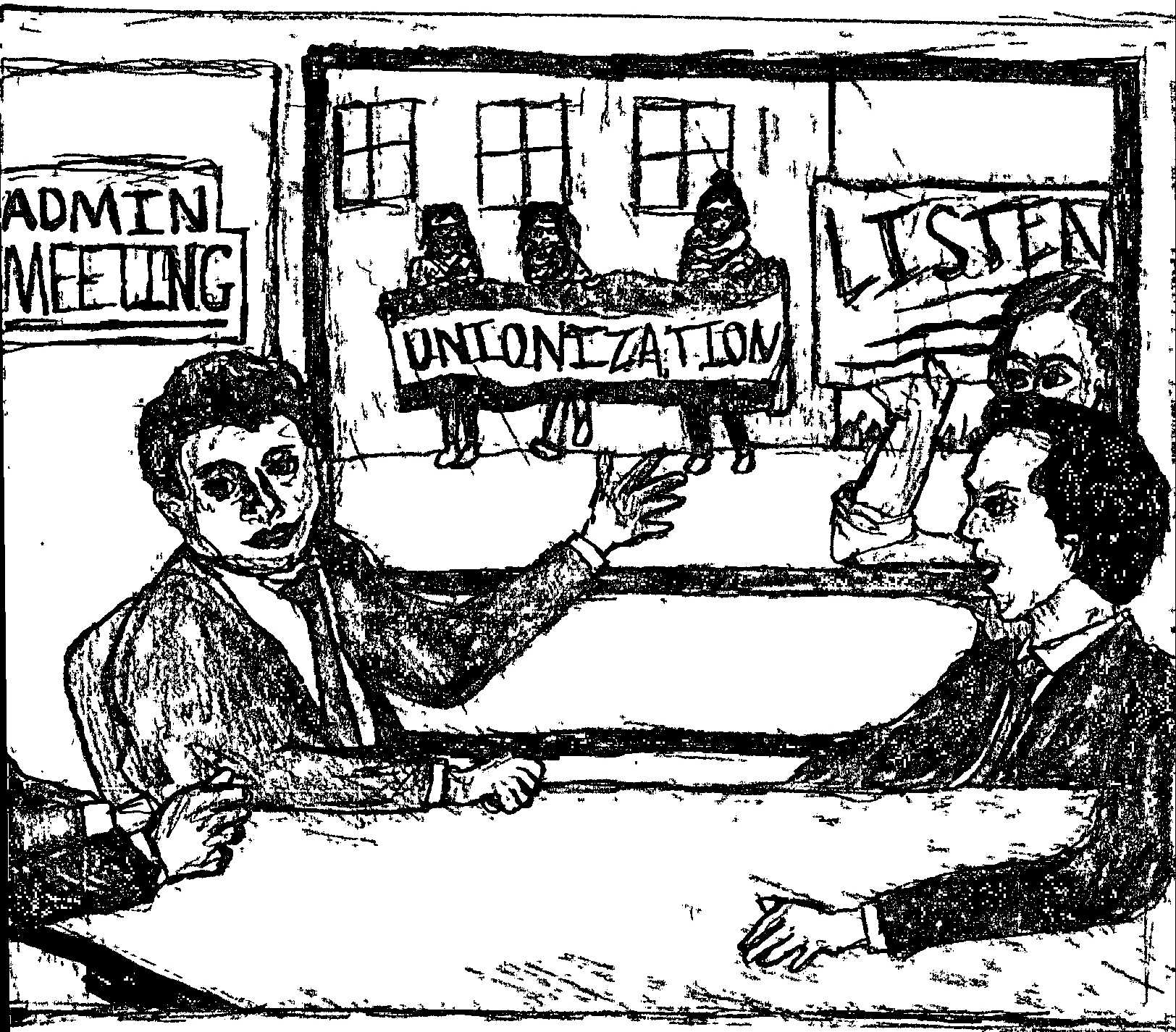Although graduate students have been pushing for unionization to improve their experience since September, the University has been firm with its opposition, arguing in March that graduate students are students first and not professionals or employees. But positions as teaching assistants and researchers aren’t just an educational experience for graduates ‒ they are their jobs.
Graduate students shouldn’t be blocked by the University for asking to form a union. While the union could gain recognition from the University or by getting approved by the National Labor Relations Board, the University shouldn’t stand in the way by failing to meet with them. After receiving a letter from GW Graduate Students United – a group formed by graduate students attempting to organize a union – Provost Forrest Maltzman said that graduate students are not employees and therefore creating a union would strain their relationship with professors and students. But when graduate students are ignored by their own university, the relationship is already strained.

Cartoon by Emily Venezky
Although GW announced its opposition to the unionization, administrators have failed to sit down and have a conversation with GSU members. These graduate students – who work in teaching assistant positions where they grade assignments, lead discussion sections and hold their own office hours – have been shut out of conversations about their experiences as employees. Graduate students come from all different financial situations, where some are living independently and others still rely on their parents, so it is unfair to dismiss their claims of low pay and food insecurity unilaterally. GSU members have come together to unionize to call for better working conditions, wages and benefits, which they say will benefit everyone at GW. Graduate students deserve to be heard by the University, but in order to persuade administrators to take them seriously, GSU must clearly define its demands and which students will benefit from these demands.
The University should be willing to meet with students, especially when they band together, but in order to be taken seriously by the University, GSU needs to clearly define the parameters that students must meet in order to fit into this union. Graduate student packages are fairly generous, but they differ on a case-by-case basis, and that means there is a difference between graduate students who are struggling and graduate students who aren’t. While Maltzman has said that the packages are worth $50,000, that money isn’t necessarily covering expenses like housing, food and insurance.
Master’s and doctorate students also vary in how independent they must be, which affects how much need they have for better wages and benefits. Before the students move forward with their push for unionization, GSU needs to ensure that all graduate students are involved in the making of the demands in order to fully represent their community. This includes graduate students who are too busy to work another job outside of the research they are conducting for the University and students who may be asked, by their individual employers, to work exclusively for the department. The graduate student community encompasses a diverse group, including students who just finished their undergraduate degree and some that have families of their own, so GSU must draft demands that will benefit all graduate students.
Although they are the largest part of the student population, graduate students do not have clear channels to administrators when issues arise. Master’s and doctorate students can go to their department heads with concerns, but change comes from the administration, not the departments. Just because these GSU members want to unionize, it shouldn’t change the fact that administrators must communicate with and address the concerns of their students. This lack of communication shows prospective graduate students that the University isn’t an institution that is willing to sit down and discuss concerns, like more comprehensive and affordable health insurance, and higher wages.
While students can achieve unionization through the NLRB – which has a history of denying union requests, like Harvard University’s application, under Republican administrations – this shouldn’t deter graduate employees. It took NYU’s graduate union eight years to become recognized again after its original contract expired, and while current graduate students may not see the benefits – their work could help people down the line.
Graduate and doctorate students are a pivotal part of the student experience at GW and they should be treated as such. While University administrators may not support GSU’s unionization efforts, they owe their students and employees an opportunity to argue and explain their case. Administrators must listen to their students because, at the end of the day, their job is to create and maintain an environment that supports their endeavors. And that starts with a seat at the table.
The editorial board is composed of Hatchet staff members and operates separately from the newsroom. This week’s piece was written by opinions editor Irene Ly and contributing opinions editor Renee Pineda, based on discussions with managing director Melissa Holzberg, managing editor Tyler Loveless, sports editor Matt Cullen, copy editor Melissa Schapiro and design editor Zach Slotkin.


